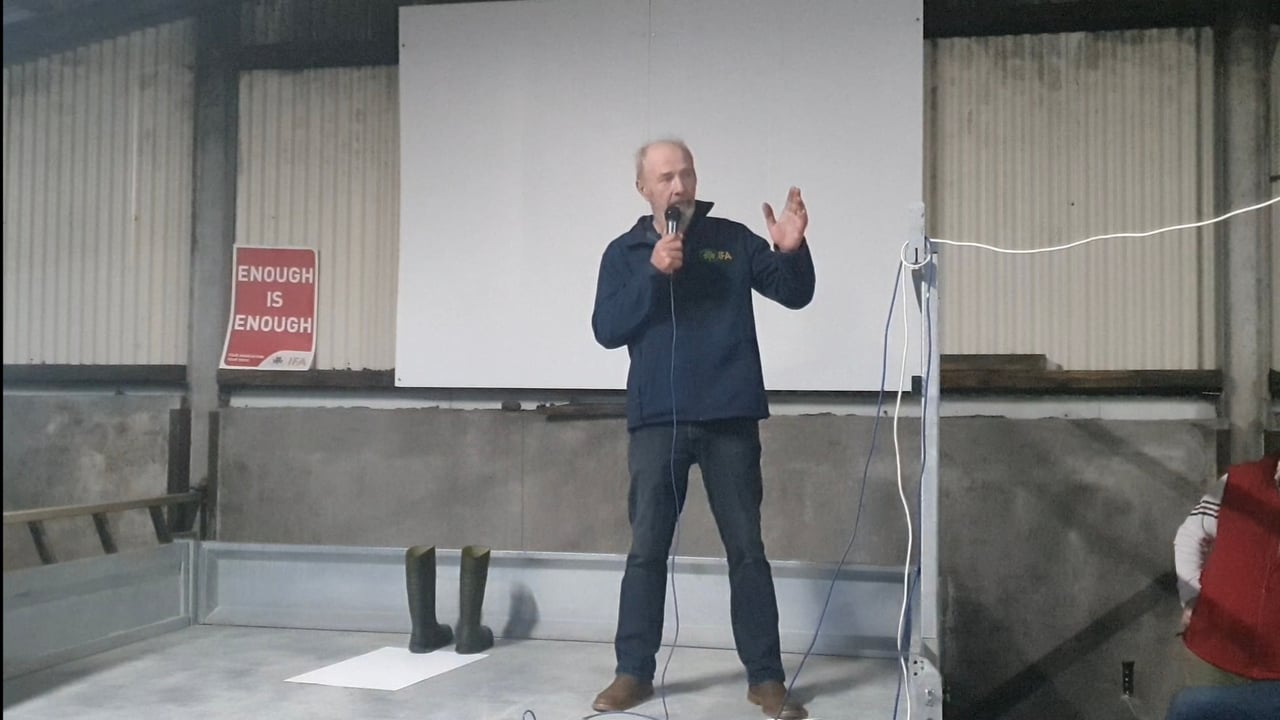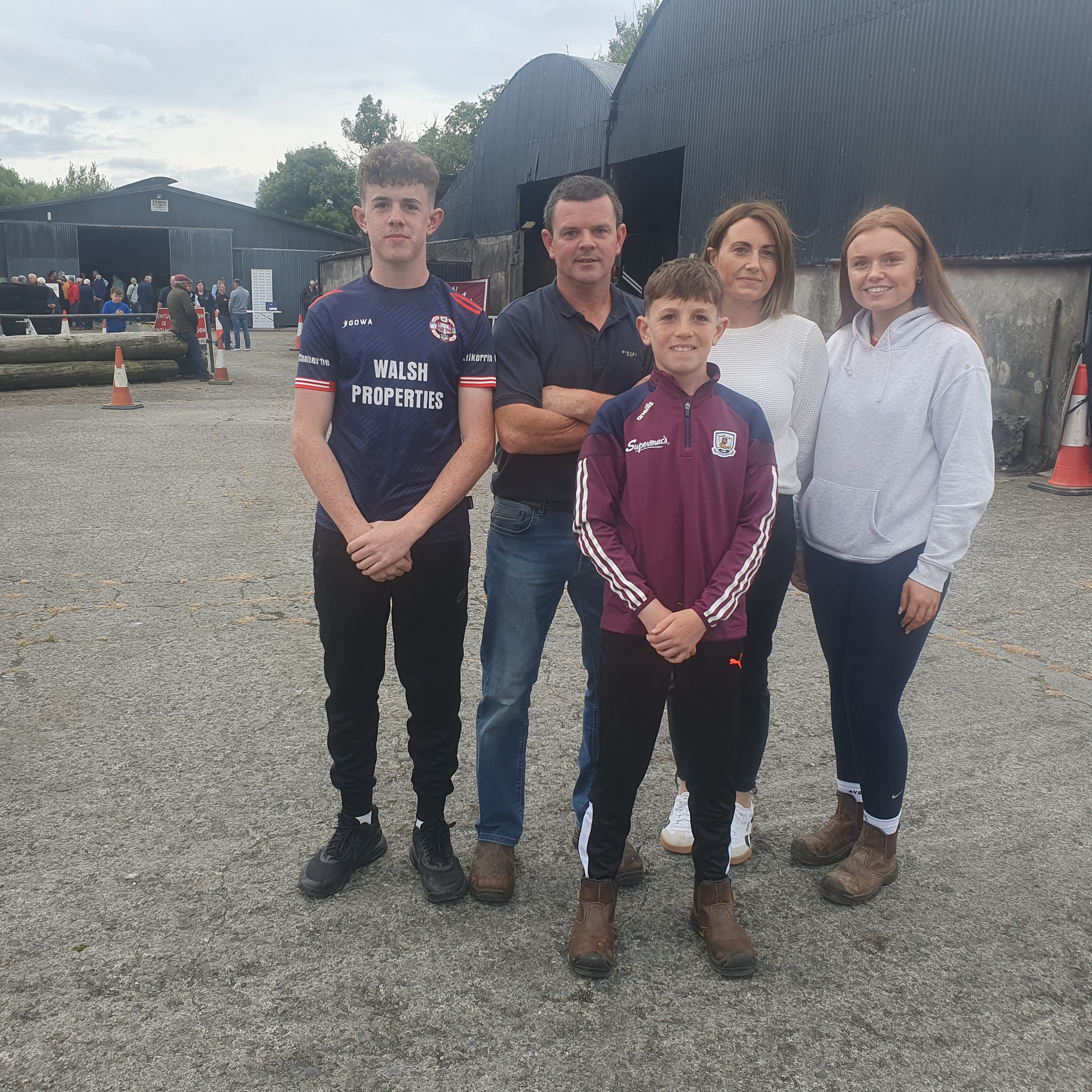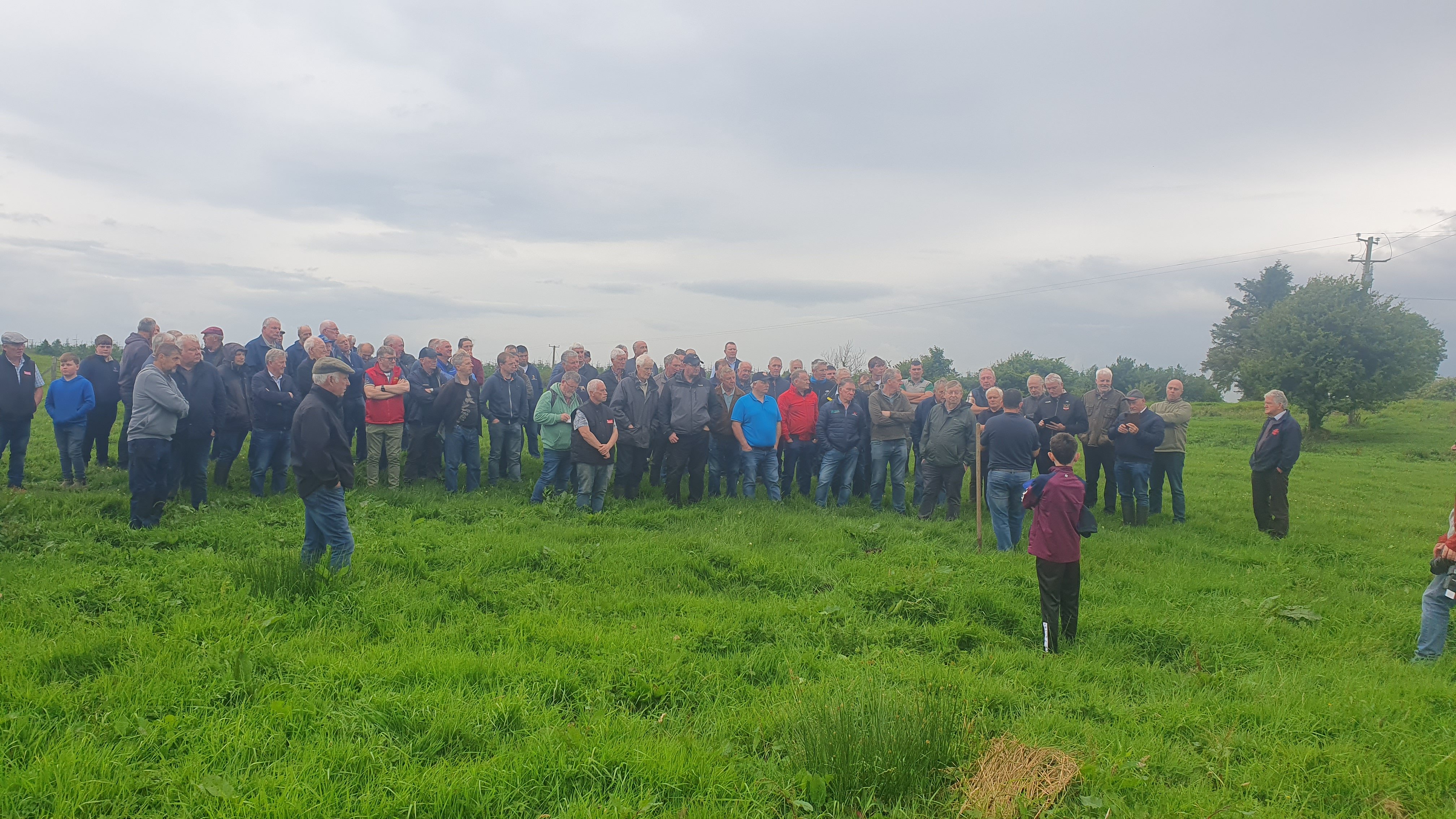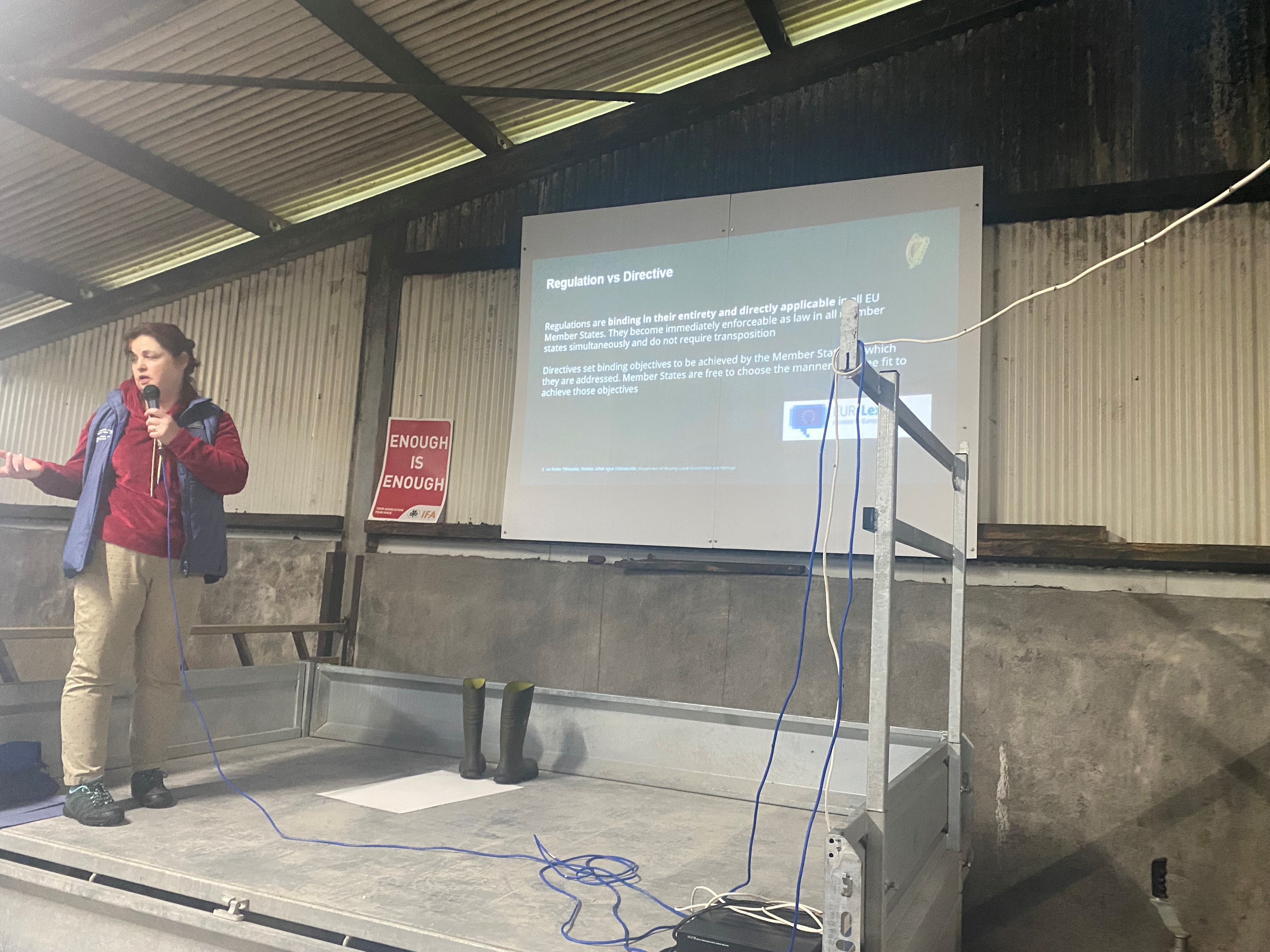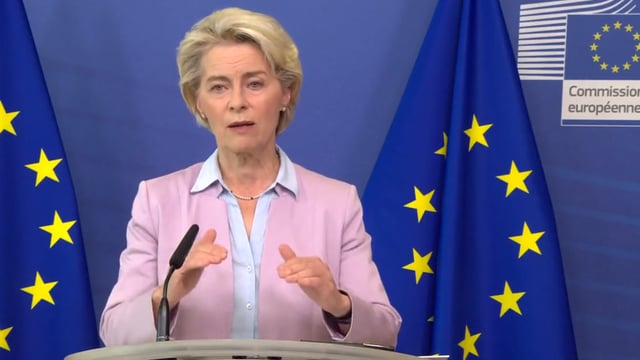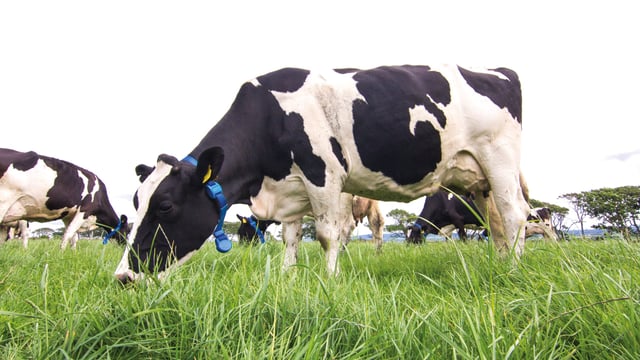Watch: 'Hands off our land' - farmers concerned about rewetting
'Hands off our land." That was the main message emerging from a farm talk in Co. Galway organised by the Irish Farmers' Association (IFA) to discuss the Nature Restoration Law and rewetting this week (Wednesday, July 18).
The farm talk took place on the farm of Micheál Haverty in Clonberne who runs a beef suckler enterprise.
There were representatives from the National Parks and Wildlife Service (NPWS), the Farm PEAT project and executives of the IFA, as well as contributions from local councillors and TDs.
The FarmPEAT programme is a locally-led results-based pilot programme for farmers who manage lands that surround some of Ireland's remaining raised bogs in the midlands.
Click the video below captured by Agriland to get a brief summary of the Galway event on Wednesday evening.
Micheál Haverty farms approximately 110ac of land with about 100 suckler cattle to weanling and store with about 10 bucket-fed calves at Clonberne in north-east Galway.
He rears the calves to store stage and sells them at 18 months-of-age.
He explained that most of his land is marginal poor quality ground and when the silage ground is removed, the remaining land is "of a peaty nature".
His late father Paddy Haverty bought the land in the 1960s and with much of it being 'peaty' soil near bogland, both Paddy and Micheál managed to work and improve it over the decades to become productive land for agriculture and grazing.
He told those who gathered at the IFA event in one of his fields yesterday: "As you can see, it's pure peaty type soil that's here, yet I can grow grass.
"But look it, there's rushes coming. It's the kind of ground they are thinking of targeting as regard peatlands and rewetting.
"I don't need it rewet, it's wet enough as it is on its own; it's drying I want to do. My father before me would have spent his lifetime draining this.
"Himself and my mother would have went about reclaiming it, stocking it and building it. It's challenging.
"It's definitely challenging. All farming at the minute is challenging, but when you're on ground like this. it's challenging."
He told the gathered farmers and politicians that everyone accepts that it is an almost impossible task to grow grass this year and he has extensively grazed pastures with only one field yielding a second cut of silage.
A participant in the Agri Climate Rural Environment Scheme (ACRES), Micheál added that he has barn owl boxes erected in some fields and hedgerows sown.
"Anybody in drystock, certainly anyone I know of my age or younger, they're working off farm as well," he said.
"I'm fortunate that I have a very flexible job with the local water scheme here, it means an awful lot when you're trying to be farming, especially calving cows."
Micheál explained that the farm had been a dairy enterprise up until 1997 but they had to move to drystock as the land was not optimal for running a dairy operation.
"We had to get out of it [dairying] at the time, because our ground is too heavy. I think it was the 15th of September the cows went in and it was the last week in April when they went back out."
"It was a non-runner; you couldn't stay milking cows," he said.
Micheál Haverty explained the impact rewetting would have on his livelihood.
"Farming is in my blood; you don't teach somebody, really, to farm.
"Getting up in the morning and going out herding or feeding cattle, or let it be 10 o'clock at night or 12 o' clock or 2 o'clock in the morning... if you're of the mindset that I hate going up here at the thoughts of going up... then you're at the wrong job.
"Getting up and going farming to me, is like getting up and having the breakfast, it's just part of the day."
He stressed that he wants to continue farming and would wish to leave the farm to his children should they express and interest in continuing with it.
"If they want to do it, they are welcome to it, if they don't, that's fine too," he said. "But I want the choice to be there."
While Micheál acknowledged that the Nature Restoration Law implemented by the European Union is promoted as being "voluntary", he remains apprehensive that it will stay as such.
"Everything is voluntary while you're hitting targets but when you're not hitting targets, voluntary is out the window," he emphasised.
He said that if some farmers opt to participate in rewetting they should be allowed to do so, but that all farmers should have the choice.
Co. Galway IFA rep, Stephen Canavan was among the IFA representatives who criticised the Nature Restoration Law and said that European politicians should keep their hands off farmers' land.
While the FARMPeat project representatives outlined some successful rewetting case studies in the midlands areas, Canavan dismissed some of the payments made to farmers in the project as "worth damn all".
NPWS representative Áinle Ní Bhríain told the meeting that is the organisation's task to work closely with stakeholders such as farmers to devise a strategy to implement the Nature Restoration Law over the next two years.
She stressed that farmers have more control over its implementation than they may realise and that they are aiming to utilise as much state land as possible to reach the target of 30% of restored peatland by 2030.
She emphasised that all stakeholders views would be sought before any scheme is designed for implementation in Ireland.
IFA president Francie Gorman added to the conversation by emphasising that farmers in this country should be allowed to progress with their farming enterprise in a way that is suitable for their livelihoods.
"In general, farmers should be allowed to farm their land in whatever way they like," he told the gathered farmers.
"That means if they want to milk cows, grow grain; if they want to keep sheep or sucklers, or even if they want to put solar panels in - and it's a hugely contentious issue - we look for the right for farmers to be able to farm their land, in general, they way it suits them, suits their family and that's what we will stand for."

